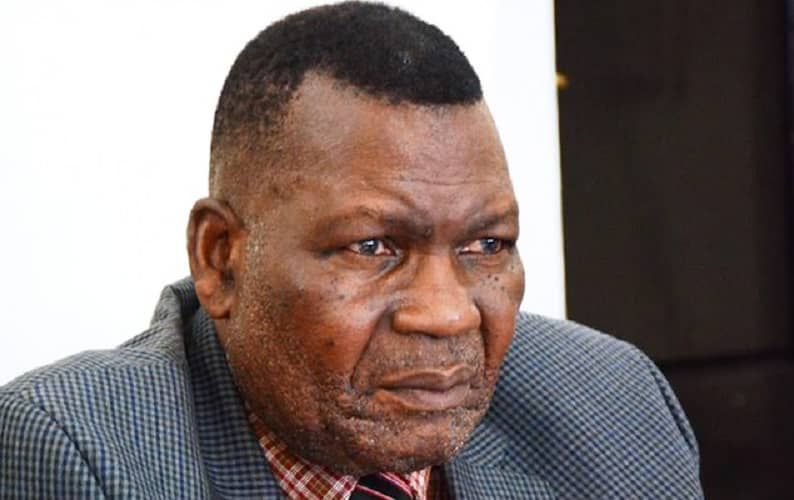By Burnett Munthali
Parliament has issued an ultimatum to Leader of the Opposition, George Chaponda, demanding that he provide evidence within 48 hours to support his claims that the National Registration Bureau (NRB) is secretly printing new national identity cards at a warehouse belonging to the National Food Reserve Agency (NFRA) in Kanengo, Lilongwe.
The allegations, which were made during a heated parliamentary session yesterday, have stirred significant controversy and prompted a swift response from both the government and legislators. Chaponda accused the NRB of engaging in clandestine activities that could compromise the integrity of Malawi’s national ID system, a critical tool for governance, electoral processes, and service delivery.

Rising to challenge the claims, Government Chief Whip Jacob Hara dismissed Chaponda’s remarks as baseless and called on him to substantiate his allegations with verifiable evidence. “These are serious accusations that have the potential to mislead the nation and tarnish the reputation of our institutions. The Leader of the Opposition must either provide evidence or retract his statement,” Hara said during the session.
Speaker of Parliament Catherine Gotani Hara intervened to restore order, emphasizing the gravity of Chaponda’s claims. She directed the Leader of the Opposition to present credible evidence to Parliament within two days. “Such allegations, if true, warrant immediate action. However, without evidence, they risk eroding public trust in critical national processes. The onus is on Honorable Chaponda to substantiate his claims,” the Speaker stated.
Chaponda, however, stood firm on his allegations, insisting that his information came from reliable sources. “The NRB has a duty to come clean on this matter. Malawians deserve transparency, especially when it comes to the handling of national IDs, which are vital for our democracy and governance,” he said.
The NRB has since denied the allegations, with its spokesperson describing them as “misleading and unfounded.” The bureau reiterated its commitment to conducting its operations transparently and in accordance with the law.
The issue has sparked public debate, with some citizens expressing concern over potential misuse of the ID system, particularly with the 2025 elections on the horizon. Others have criticized Chaponda for making unverified claims that could unnecessarily alarm the public.
As the 48-hour deadline looms, all eyes are on Chaponda to deliver the promised evidence. Failure to do so could damage his credibility and undermine his role as Leader of the Opposition. Conversely, if the allegations are substantiated, the implications for the NRB and the government could be far-reaching.
This development highlights the critical need for accountability and transparency in Malawi’s public institutions, especially as the country prepares for the next electoral cycle. The outcome of this matter will likely set the tone for how such allegations are handled in the future, underscoring the importance of balancing scrutiny with responsibility in public discourse.


